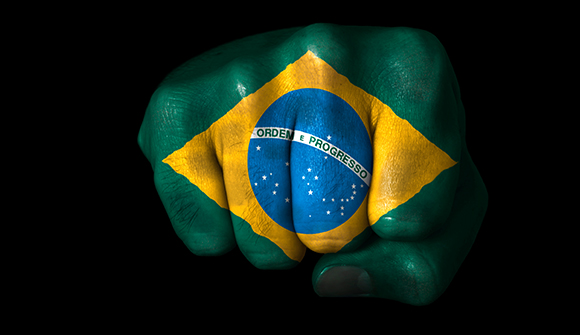
Analysis: Brazil riots raise questions over sporting mega-events … Brazilian anger against the cost of staging the World Cup could undermine the argument that host countries benefit from sporting mega-events as they become too big for most countries to handle. UEFA's idea of splitting the Euro 2020 championship into minitournaments hosted in 13 different countries could be one of the alternatives which organizers could follow in the future, analysts say. Brazil has been hit by a wave of nationwide protests as it hosts the eightteam Confederations Cup, a dry-run for next year's World Cup which will be staged in 12 different cities. Although the protesters have a multitude of grievances, one of their main complaints has been the contrast between shiny new stadiums and shambolic state of public services including health, education. – Reuters
Dominant Social Theme: What's going on here? Why are they are marching in Brazil?
Free-Market Analysis: There are probably at least two reasons why Brazil is roiled by protests. Begin at the beginning: Only a fool or a naïf would insist that US intel may not have at least brushed these protests. What South American events are not, at least to some extent, influenced by its brutish neighbor to the north?
While as usual there is no hard evidence, it has been mentioned in the alternative press that both the current Brazilian administration and the one in Turkey have been supportive of Russia in the current Syrian dispute. This is certainly enough reason to orchestrate "regime change."
But a second reason – far more obvious – is also in play, and that is that people are genuinely fed up in Brazil … and elsewhere, too.
You can be sure, whether it is China, India – or even Russia – people have had enough of the ever-expanding hyper-regulatory state with its high inflation, its high taxes and increasingly authoritarian bent.
In such times it takes little more than a spark to set off a large conflagration – and no doubt Western intel agencies are happy to provide such a spark as they choose.
But whatever spark was provided when it comes to Brazil has certainly turned into a conflagration. Here's more:
… They are also angry that Brazil has broken a promise not to spend public money on stadiums, while failing to build many of the planned infrastructure projects. "The stadiums for the World Cup will be built with private money," Orlando Silva, sports minister at the time, said in 2007 when Brazil was confirmed as the host nation. "There will not be a cent of public money for the rebuilding of the stadiums."
Instead, building work fell behind schedule and the state and federal governments had to come to the rescue. Meanwhile, at least five host cities will miss out on promised bus lanes, metro lines or tram services and cities are now likely to declare public holidays on match days to reduce traffic, a move which critics says reeks of typical improvisation.
"What is happening right now in Brazil should be a watershed for FIFA and the World Cup," said Simon Chadwick, professor of sports marketing at Coventry University in central England. "It should respond by working more strategically to ensure that future World Cups are not just two-week showcases, but have a longer-term legacy for host nations. "It some ways, it's an acid test for FIFA and its ability as an organization to adapt, respond and learn."
This last suggestion is ridiculous. FIFA and other large sports supervisory organization are not going "adapt and learn" because their mission is not adaptable. They are part of a larger mechanism that seeks state empowerment through athletics.
But there is a counter-trend when it comes to these kinds of manipulations, and it is one we can see taking place around the world.
It used to be fairly easy to manipulate whole populations and to create rebellions and even regime change. But these days, we'd argue it is a far more unpredictable process because of what we call the Internet Reformation.
Whether it is the threat of popular agitation in China, the Tea Party in the US or UKIP in Britain, the knowledge base provided by the Internet is generating populist movements that threaten to spin out of the control.
The 20th century in particular was an era in which the globalist impulse had almost no impediments to contend with. The 21st century is a much different time.

Be careful what you wish for – or what you start.
